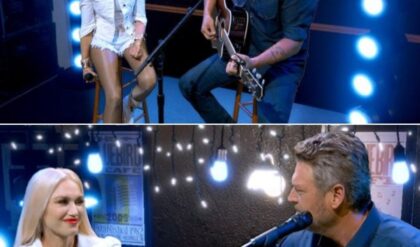In the glittering yet treacherous world of Hollywood, where a single tweet can eclipse a blockbuster premiere, Rachel Zegler has emerged as both villain and hero in a saga as twisted as a Grimm fairy tale. The 24-year-old breakout star, whose luminous turn in Steven Spielberg’s West Side Story catapulted her to fame, found herself at the epicenter of a cultural maelstrom earlier this year. Disney’s live-action Snow White, a $270 million behemoth meant to revive the studio’s classic remakes, crashed spectacularly at the box office, grossing a paltry $43 million in its opening weekend against sky-high expectations. Critics panned its lackluster CGI, phoned-in performances, and tonal whiplash, but the real scapegoat? Zegler herself. Blamed not for her on-screen portrayal of the iconic princess—hailed by some as a fresh, empowered take—but for her unapologetic social media posts championing Palestine. As the film’s ashes smoldered, Zegler stepped forward in a raw, revealing interview with i-D Magazine, defending her stance with a quiet ferocity: “There are obviously things that are at stake by being outspoken, but nothing is worth innocent lives.” Wearing a beaded “ceasefire” bracelet in Palestinian flag colors, she added, “My heart doesn’t have a fence around it, and if that is considered my downfall? There are worse things.” In an industry quick to silence dissent, Zegler’s refusal to bend has ignited debates about free speech, corporate power, and the human cost of Hollywood’s selective outrage.
The Snow White debacle didn’t erupt overnight; it was a slow poison apple, festering from the moment Zegler was cast in 2021. At 20, the Colombian-American actress with a voice like velvet thunder became the face of Disney’s boldest pivot yet: a Latina Snow White, reimagined as a leader rather than a damsel. Trailers teased a vibrant, song-soaked adventure with Gal Gadot as the venomous Evil Queen, but backlash brewed early. Online trolls decried Zegler’s casting as “woke erasure,” her comments on the original 1937 film’s “dated” gender roles as heresy. “It’s no longer 1937,” she quipped in a resurfaced 2022 clip, sparking memes and manifestos from purists who saw her as the death knell for childhood nostalgia. Production delays—first COVID, then 2023 Hollywood strikes—only amplified the scrutiny, turning the film into a lightning rod for every grievance against “modern Disney.”
But the true turning point came in August 2024, amid the D23 Expo fan frenzy. Zegler dazzled on stage, unveiling the first trailer to thunderous applause. Within days, it racked up 120 million views, a digital triumph. Grateful, she posted on X (formerly Twitter): a heartfelt thanks to fans, followed by a standalone tweet: “and always remember, free palestine.” The words, appended like a whispered incantation, weren’t new for Zegler. She’d been vocal about the Israel-Palestine conflict since 2021, tweeting “it will always be free palestine” during that year’s Gaza flare-up and urging a ceasefire in a January 2025 Instagram Story. In a Variety profile, she elaborated: “I can’t watch children die. I don’t think that should be a hot take.” Yet in the trailer’s afterglow, the post landed like a hex. Pro-Israel voices erupted, accusing her of antisemitism and shading co-star Gadot, the Israeli actress and former IDF soldier who’s long defended her homeland’s actions post-October 7, 2023. Accounts like @StopAntisemitism branded Zegler a bigot; calls for boycotts surged, with #BoycottSnowWhite trending alongside #KeepSnowWhitePure.
Disney’s response was swift and shadowy. According to Variety‘s explosive exposé on the film’s “fiasco,” producer Marc Platt—father of actor Jonah Platt—flew to New York for a closed-door sit-down with Zegler. The message? Delete the tweet. It was alienating audiences, Platt argued, signaling to “a substantial chunk of America” that the film wasn’t for them. Jonah Platt later piled on in a now-deleted Instagram comment, claiming her “personal politics” had torpedoed the box office. Zegler, sources say, listened politely but stood firm. “I’m only responsible for what I feel,” she later reflected. “And then I’m also responsible for how I act upon it.” The encounter wasn’t isolated; Disney beefed up her security amid death threats, hired a “social media guru” to scrub her feeds, and navigated a minefield of internal memos. For Zegler, it echoed the fate of Scream star Melissa Barrera, axed in 2023 for similar pro-Palestine posts deemed “antisemitic” by studio brass. “I refuse to be another casualty,” Zegler confided to friends, per insiders.
As Snow White hit theaters on March 15, 2025, the fallout metastasized. Opening weekend tallied a dismal $43 million domestically—far below projections—and global hauls barely crested $150 million before flatlining. Reviews were brutal: The Guardian called it “a poisoned chalice of CGI dreck,” while Rotten Tomatoes scores languished at 42% critics, 58% audience. But the narrative spun viciously toward Zegler. Fox News ran headlines like “New ‘Snow White’ Star Stirs More Controversy with ‘Free Palestine’ Post: ‘Great Choice, Disney’,” quoting journalists sniping “Free Palestine from centuries of Arab terror.” Jonah Platt doubled down, tweeting that her actions “clearly hurt the film’s box office.” Even Gadot, in a post-premiere chat, hinted at the “anti-Israel sentiment” dragging performance, though she stopped short of naming Zegler. Pro-Palestine activists, meanwhile, boycotted over Gadot’s involvement, dubbing her an “IDF ambassador” and the film “Zionist propaganda.” Caught in the crossfire, Zegler became a Rorschach test: a divisive diva to conservatives, a brave resistor to progressives.
Social media amplified the cacophony. On X, #RachelZegler trends spiked with vitriol—trolls photoshopping her face onto wanted posters, MAGA accounts linking her to “Hamas sympathizers.” TikTok duets dissected her trailer tweet, racking up millions of views with captions like “Disney’s woke princess ruins fairy tale.” Yet solidarity surged too: #StandWithRachel threads amassed thousands of shares, users praising her as “Gen Z’s conscience.” Reddit’s r/Fauxmoi dissected Variety‘s report, with 11,000 upvotes decrying the “low-key blame game” on Zegler while ignoring the film’s script woes. One viral post quipped: “Blame the tweet, not the terrible dwarves CGI.” Celebrities weighed in unevenly—John Boyega tweeted support (“Speak your truth, sis”), while Kristin Chenoweth shaded her indirectly, backing Jonah Platt as a “good man.” Zegler’s own feeds, once a whirlwind of theater clips and activism, went quiet post-premiere, save for subtle nods: a Story repost of Gaza aid drives, a bracelet peeking in promo shots.
Zegler’s i-D interview, dropping June 23, 2025, was her first unfiltered reckoning. “The backlash has been really alarming,” she admitted, crediting therapy and medication for weathering the storm. On Palestine, she quoted comedian Hannah Einbinder’s viral speech: the platform’s duty to amplify the silenced. “We’re nearing one year since the horrendous attacks in Israel on Oct. 7, but I’ve been following this conflict for so many years,” she said. “Like so many people, I’m so heartbroken by the loss of life… with these insane death tolls coming out of both regions.” No regrets for the tweet—”My compassion has no limits”—but she addressed the Trump post, a post-election rant wishing his supporters “never know peace,” for which she’d apologized. “That was heat-of-the-moment hurt,” she clarified. “But on Palestine? That’s principle.” The piece, paired with ethereal photos of Zegler in wildflower crowns, humanized her: not a firebrand, but a young woman grappling with grief over 40,000+ Palestinian deaths (per Gaza health ministry figures) amid a war that’s polarized the globe.
The irony isn’t lost on observers. Zegler, singing Someday My Prince Will Come reimagined as an anthem of self-reliance, faced corporate edicts to muzzle her voice—precisely the empowerment Disney peddled. Polls show her generation’s tilt: Gen Z overwhelmingly backs Palestine, with 2024 surveys indicating 60%+ sympathy for the cause versus 30% for Israel. Yet Hollywood’s old guard clings to neutrality, or worse, selective solidarity. Gadot, unassailed despite her IDF past and vocal Israel defense, embodies the double standard. “Serving in the army? Heroic. Calling for ceasefire? Career suicide,” one X user lamented, echoing Zegler’s plight. Critics like The New Arab warn of blacklisting, citing Barrera’s ouster as precedent. Zegler, undeterred, eyes forward: whispers of a Broadway return, indie scripts piling up. “If speaking out costs roles, so be it,” she told i-D. “Innocent lives? That’s the real price.”
As summer 2025 fades, Zegler’s stand reverberates beyond Snow White‘s ruins. It’s a microcosm of 2025’s culture wars: where fairy tales fracture along fault lines of race, politics, and power. Disney, licking $200 million wounds, vows “lessons learned” in investor calls, but the damage lingers—a reminder that in Tinseltown, the wickedest queens aren’t always on screen. For Zegler, the mirror reflects resilience: a star not dimmed, but forged in fire. In her words, borrowed from Einbinder: “If my heart’s my downfall, there are worse fates.” Hollywood may scramble to contain the blaze, but Zegler’s spark—fierce, unyielding—illuminates a path for those brave enough to follow.





